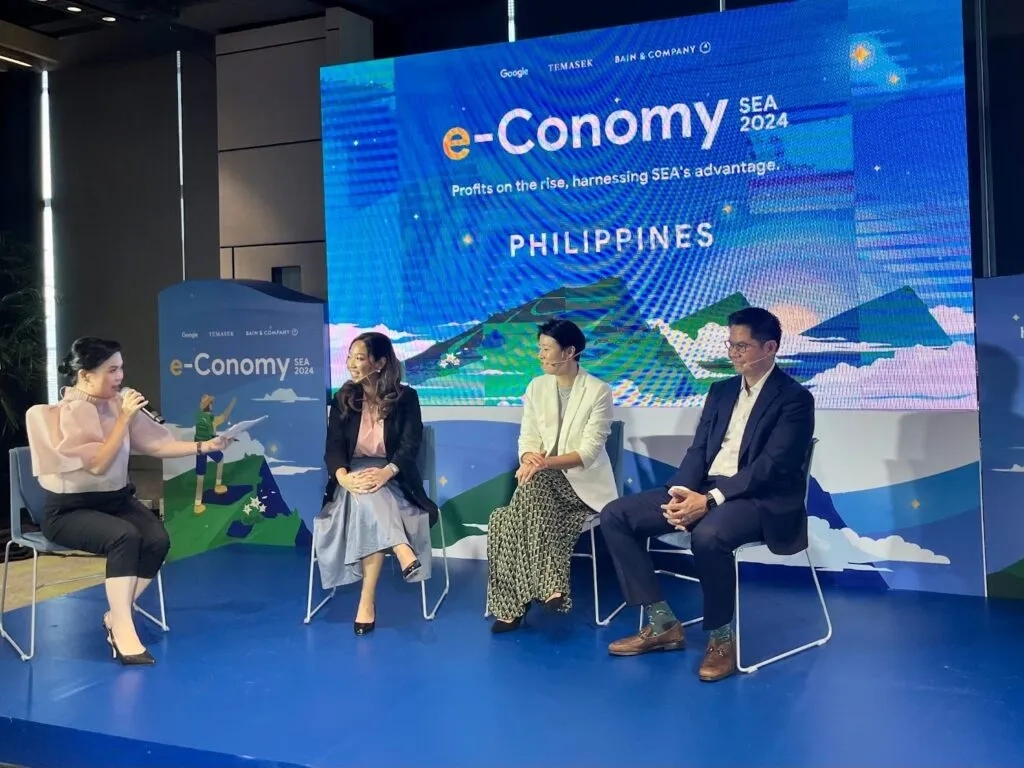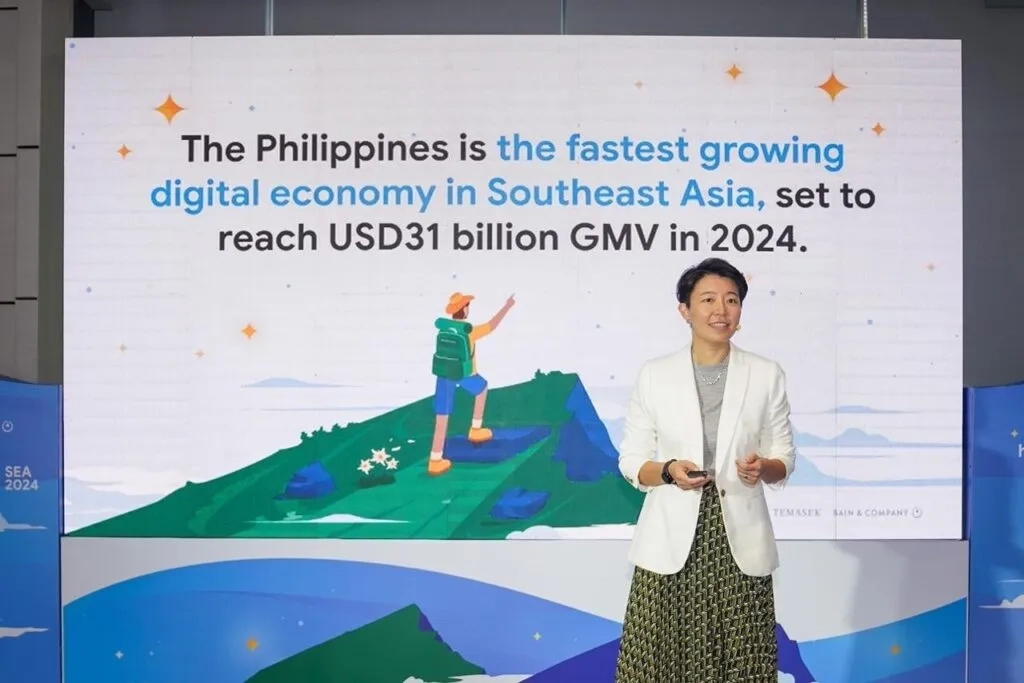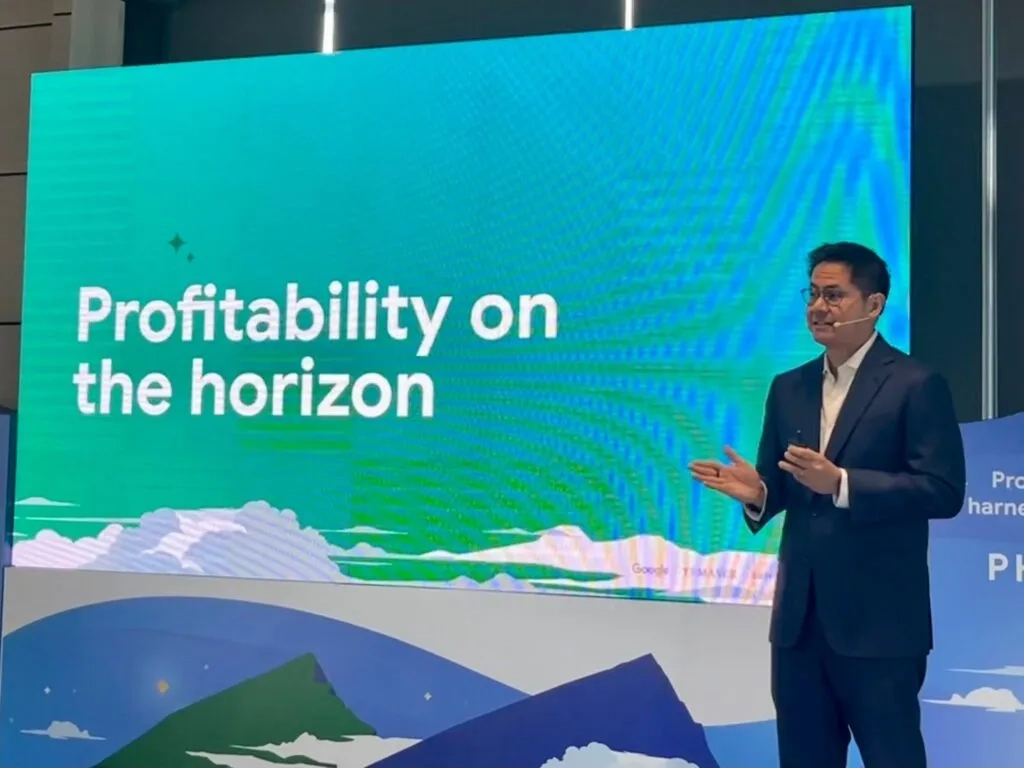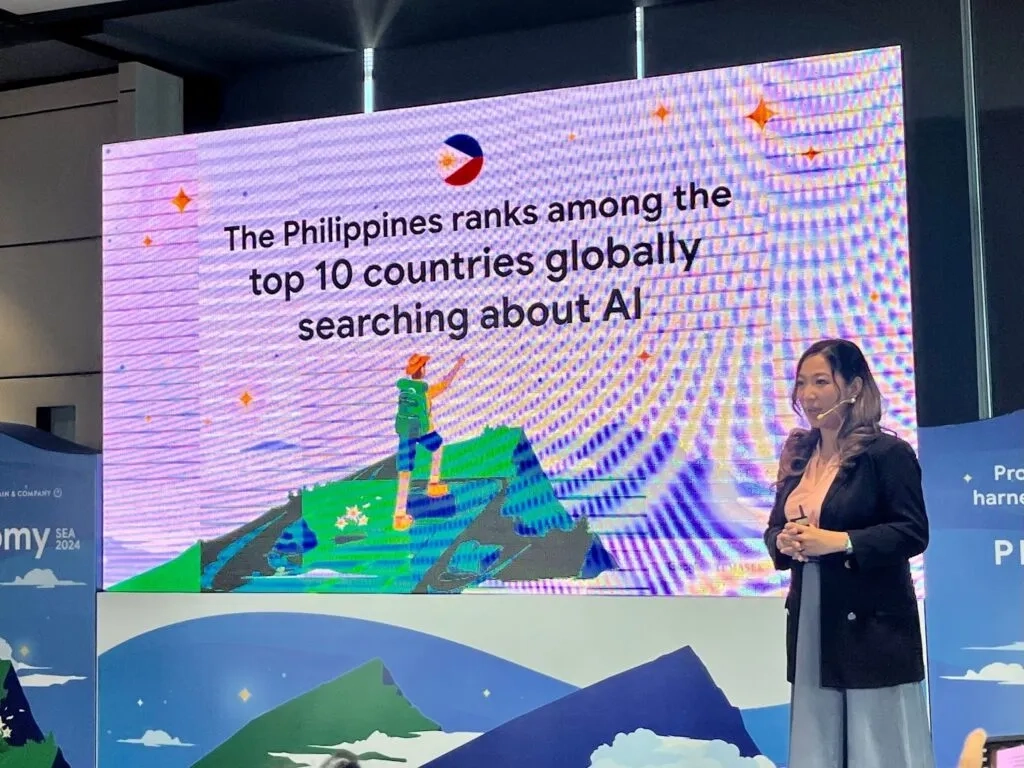- Homepage
- >
- News
- >
- Business
- >
- Southeast Asia’s digital economy growth: AI, blockchain’s roadmap
Google (NASDAQ: GOOGL), Temasek, and Bain & Company recently launched their latest e-Conomy SEA (Southeast Asia) report. The report tracks Southeast Asia’s digital economy through peaks and pivots, and breaks down key enablers that will unlock the region’s potential, such as artificial intelligence (AI).
 Nikki Del Gallego, Data and Insights Lead, Google Philippines; Jackie Wang, Country Director, Google Thailand and Philippines; Bennett Aquino, Partner, Bain & Company.
Nikki Del Gallego, Data and Insights Lead, Google Philippines; Jackie Wang, Country Director, Google Thailand and Philippines; Bennett Aquino, Partner, Bain & Company.
Bennett Aquino, Partner at Bain & Company, said while blockchain adoption may lag behind other digital financial services by a year or two, it is still poised for growth in the region and the Philippines. He explained, “If the fundamentals are correct, that should be the future.” He also emphasized the need for backend improvements like connectivity and software to ensure blockchain systems meet modern standards.
Aquino also highlighted the potential of blockchain and digital currency in the Philippines, emphasizing that these technologies align closely with the principles of digital financial services. Aquino remarked, “The important pillars for digital financial services broadly also apply to crypto.” These pillars include digital and financial literacy, robust digital infrastructure, and strong cybersecurity measures.
Digital trust: A cornerstone of progress
 Jackie Wang, Country Director, Google Thailand and Philippines.
Jackie Wang, Country Director, Google Thailand and Philippines.
Jackie Wang, Country Director for Google Thailand and the Philippines, underscored the critical importance of digital trust in an increasingly connected world. “As more people come online, it’s really important to keep the momentum going by fully harnessing AI and building digital trust,” Wang stated. She stressed that accidental data exposure and cyberattacks are ongoing threats that must be addressed comprehensively.
Wang called for collaboration across all sectors—consumers, businesses, governments, and society—to safeguard online spaces. “Businesses must be unwavering in their commitment to robust security measures and transparency in data practices,” she said. From the government’s perspective, balancing a thriving digital economy with stringent cybersecurity protections is essential.
“Now, we all need to build and maintain the digital trust, which requires a comprehensive approach. Which means we need to both address the unintentional harm and the malicious threats that are happening in the online space,” she said.
“We know that accidental data exposure can undermine users’ trust and has serious consequences. While cyberattacks and data breaches are just ongoing challenges. So keeping the users safe and teaching them how to protect themselves is a must.”
AI as a catalyst for digital and economic growth
Narrowing to the Philippines’ potential in artificial intelligence, Wang expressed optimism about the country becoming a leader in AI adoption. She cited the National AI Roadmap as evidence of the government’s proactive stance, noting its focus on developing AI talent and fostering ethical AI implementation.
“The Philippines has what it takes to be a leader in AI adoption,” Wang said, pointing to factors such as the nation’s young, tech-savvy population, high smartphone penetration, and English proficiency. She also acknowledged the government’s partnerships with industry leaders like Google to enhance workforce skills, including the rollout of the AI Essentials Skilling Program.
E-commerce: The centerpiece of the digital economy
 Bennett Aquino, Partner, Bain & Company.
Bennett Aquino, Partner, Bain & Company.
Aquino also shed light on the Philippine digital economy’s rapid growth, which is mainly driven by e-commerce. Of the projected $31 billion in gross merchandise value (GMV) for 2024, $21 billion is attributed to e-commerce, growing at a remarkable 23% year-on-year. “E-commerce remains the centerpiece of the Philippines’ digital economy,” Aquino said, adding that innovations like video commerce are redefining consumer behavior.
“This momentum is actually further fueled by just the coming together of several different factors, the adoption of digital platforms, the continued rise of e-commerce, the increasing penetration of digital finance by players like GCash and Maya, and local businesses capitalizing on this to go digital,” Aquino said.
Consumer behavior and digital inclusivity
 Nikki Del Gallego, Data and Insights Lead, Google Philippines.
Nikki Del Gallego, Data and Insights Lead, Google Philippines.
Nikki Del Gallego, Data and Insights Lead at Google Philippines, discussed the evolving digital behavior of Filipinos. She noted, “Users today are becoming more digital explorers.” Instead of searching for specific brands, consumers now prioritize functionality and relevance, driving businesses to innovate and adapt to new trends.
“It’s not new to us to see that users like you and I are changing rapidly in our behavior. We might not notice it day to day, but you’ll see here in the past four and five years, a drastic shift in the way we shop, the way we look at options in the economic sectors,” Del Gallego said.
Del Gallego highlighted the importance of inclusivity in the digital economy. “By actively expanding opportunities and ensuring underserved communities can fully participate, we can create a digital future where more Filipinos thrive,” she explained. She also pointed to the need for a multilingual approach to deepen engagement and cultural relevance, particularly for rural communities entering the digital space.
The rise of AI-related search interests reflects its growing significance among Filipino consumers. Del Gallego remarked, “Search specificity is increasing, with users now looking for highly detailed and personalized results.” This trend, coupled with advancements in AI, presents new opportunities for businesses to meet the evolving demands of a tech-savvy population.
The path forward: Trust, innovation, and inclusivity
As the Philippines solidifies its position as Southeast Asia’s fastest-growing digital economy, experts agree that trust, innovation, and inclusivity are critical to sustaining this momentum. Wang encapsulated the collective optimism, stating, “The region can drive robust growth and profitability in the digital economy while ensuring inclusivity and sustainability.”
In order for artificial intelligence (AI) to work right within the law and thrive in the face of growing challenges, it needs to integrate an enterprise blockchain system that ensures data input quality and ownership—allowing it to keep data safe while also guaranteeing the immutability of data. Check out CoinGeek’s coverage on this emerging tech to learn more why Enterprise blockchain will be the backbone of AI .
Watch: How can Philippine startups unlock Web3? Experts weigh in
title="YouTube video player" frameborder="0" allow="accelerometer; autoplay; clipboard-write; encrypted-media; gyroscope; picture-in-picture; web-share" referrerpolicy="strict-origin-when-cross-origin" allowfullscreen="">


